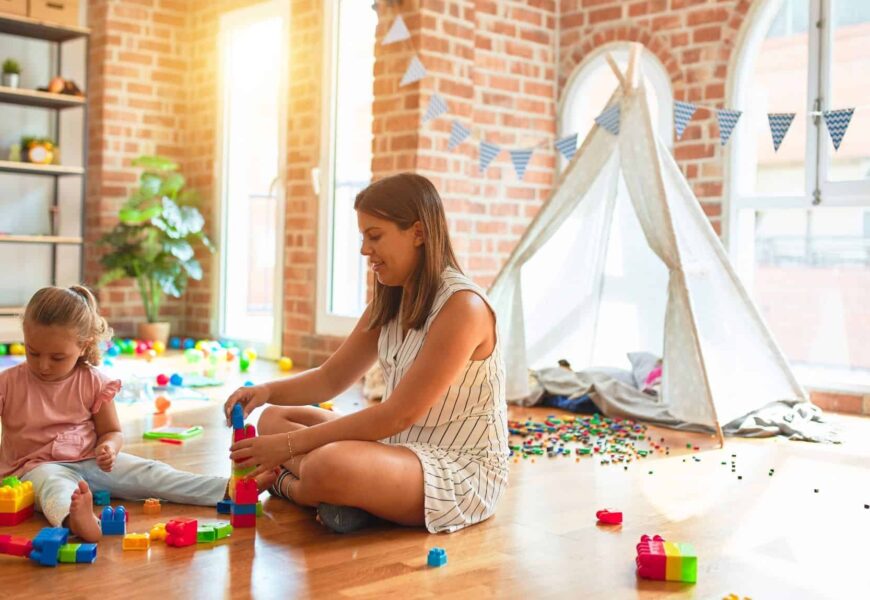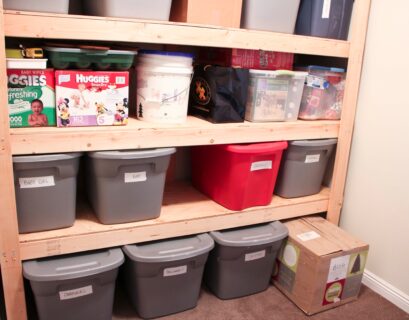Keeping a tidy home with kids around can be challenging, especially when it comes to managing their toys. Encouraging children to tidy up their toys not only helps maintain a cleaner home but also teaches them responsibility and organizational skills. Here’s how you can make tidying up a fun and effective part of your child’s routine.
Why It’s Important for Kids to Tidy Up
- Develops Responsibility: Regularly tidying up teaches kids to take responsibility for their belongings.
- Promotes Organization: Learning to organize their toys helps kids develop essential organizational skills.
- Creates a Sense of Ownership: Children take better care of their toys when they are involved in maintaining them.
- Reduces Clutter: A tidy play area minimizes clutter and creates a more pleasant living environment for the whole family.
- Enhances Focus: A clean and organized space can improve a child’s ability to focus and play more creatively.
Strategies to Encourage Kids to Tidy Up
- Make It Fun Turn cleaning into a game to make it more enjoyable. Set a timer and challenge your child to see how many toys they can put away before it goes off. You can also play upbeat music to create a lively atmosphere while tidying up.
- Use Positive Reinforcement Praise your child for their efforts and accomplishments. Positive reinforcement, such as a high-five, a sticker, or extra playtime, can motivate them to continue tidying up regularly.
- Set Clear Expectations Clearly explain what you expect from your child when it comes to tidying up. Show them where each toy belongs and demonstrate how to put things away properly. Consistency is key to helping them understand and meet these expectations.
- Create a Reward System Implement a reward system to encourage regular tidying. For example, you can create a chart where your child earns a sticker each time they tidy up. After earning a certain number of stickers, they can choose a small reward, such as a special treat or an extra story at bedtime.
- Designate a Specific Time Establish a regular time each day for tidying up, such as before dinner or bedtime. Making it a part of their daily routine helps children understand that tidying up is a regular responsibility, not just an occasional chore.
- Provide Accessible Storage Solutions Ensure that storage solutions are easily accessible to your child. Use bins, baskets, and shelves that are at their height so they can easily reach and put away their toys. Labeling storage containers with pictures or words can also help them identify where things belong.
- Lead by Example Children learn by observing their parents. Set a good example by keeping your own belongings tidy and involving your child in other household chores. Show them that tidying up is a normal part of daily life.
- Teach Sorting and Categorizing Teach your child how to sort and categorize their toys. For example, have separate bins for blocks, action figures, and art supplies. This not only helps with organization but also makes it easier for them to find and put away their toys.
Tips for Success
- Be Patient Teaching children to tidy up takes time and patience. Encourage and guide them gently, and be patient as they learn and develop this habit.
- Keep It Age-Appropriate Tailor your expectations and instructions to your child’s age and abilities. Younger children may need more guidance and simpler tasks, while older kids can handle more complex responsibilities.
- Stay Consistent Consistency is crucial in establishing any new habit. Stick to the established tidying routine and reward system to reinforce the behavior.
- Involve Them in the Process Involve your child in the process of organizing their toys and setting up the storage system. When they have a say in how their play area is organized, they are more likely to take ownership and keep it tidy.
Conclusion
Encouraging kids to tidy up their toys is an essential part of teaching them responsibility and organizational skills. By making tidying up fun, setting clear expectations, and providing accessible storage solutions, you can help your child develop good habits that will benefit them throughout their lives. Start implementing these strategies today and enjoy a cleaner, more organized home while teaching your child valuable life skills.











